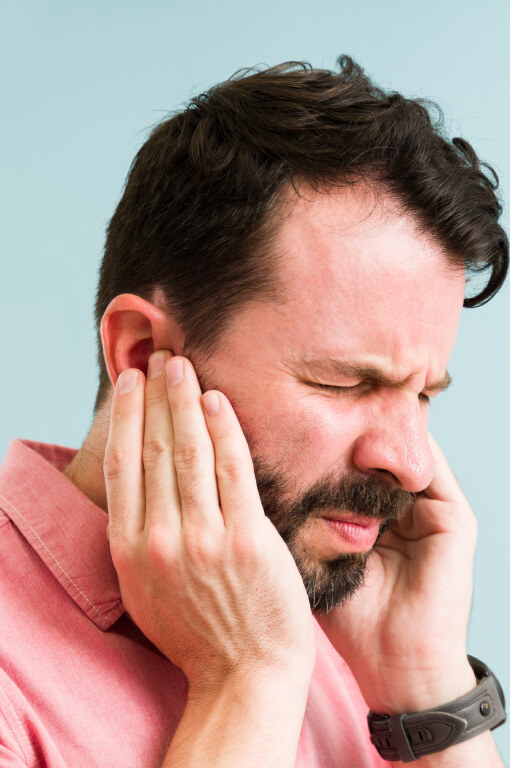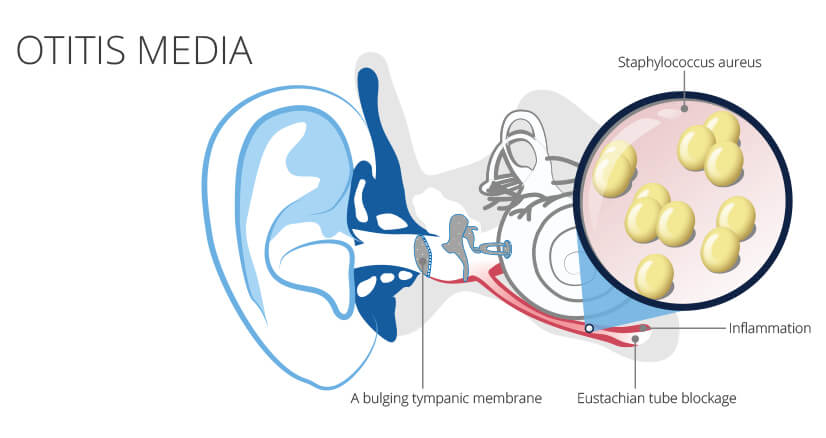
Otitis media
Symptoms, course, duration - everything you should know
Earache, pressure, and hearing problems can be symptoms of acute otitis media. Children, toddlers and babies are particularly affected. If you have symptoms of otitis media, you should definitely consult a doctor to prevent permanent hearing damage. We answer the most important questions about otitis media (technical term: otitis media acuta).
Table of Contents
- Otitis media symptoms
- Otitis media complications
- Effects on children
What are the symptoms of otitis media?
An otitis media is always associated with severe earache, which is often pulsating. Those affected often feel weak and sick or have a fever. In addition to a feeling of pressure and fullness in the ear, tinnitus can occur. At the same time, sounds in the outside world sound dull and hearing is limited overall.
Other symptoms of otitis media:
- Weakness
- Redness and swelling behind the ear
- Dizziness
- Headache
- Fluid behind the eardrum
- Tear or hole in the eardrum
- Discharge of fluids from the ear
Is otitis media contagious?
Whether an otitis media is contagious depends on the specific accompanying symptoms. On its own, otitis media isn’t actually contagious. However, if the otitis media is the result of a cold, the cold can be contagious.
Therefore, if you have an otitis media with simultaneous cold symptoms, you should be particularly careful in direct contact with other people and especially when dealing with babies and children.

How long does an otitis media last?

If there are no complications, acute otitis media in adults and children will subside after about 7–9 days. If the course and duration of an otitis media are noticeable, long-term complications can arise. If an otitis media occurs three times within 6 months, or four times within 12 months, it is referred to as recurrent otitis media.
If the otitis media has persisted for more than two months, it is a chronic otitis media.
What should you do if an otitis media affects a baby or toddler?
If your baby or toddler has any of the following symptoms, they may have an otitis media:
- Rising body temperature
- Fever over 39 ° Celsius
- The child is constantly touching his ear
- Abdominal pain
An otitis media is not uncommon in babies or young children. Children up to the age of 6 are most often
affected by acute otitis media. In the first year of life, 50% of infants go through an otitis media, in the third year of life it is even 80%.
The greatest danger here is that the children’s complaints will not be taken seriously and the disease will be dragged on. This can lead to chronic otitis media or permanent hearing loss .
It is, therefore, best to consult a paediatrician promptly if you have the symptoms mentioned above.
Babies and toddlers who are more likely to have otitis media may also have enlarged tonsils. In such a case, the following signs should be used to check whether it makes sense to remove the tonsils:
- Difficulty breathing through the nose
- Accumulation of fluid behind the eardrum
- Multiple otitis media within a year

